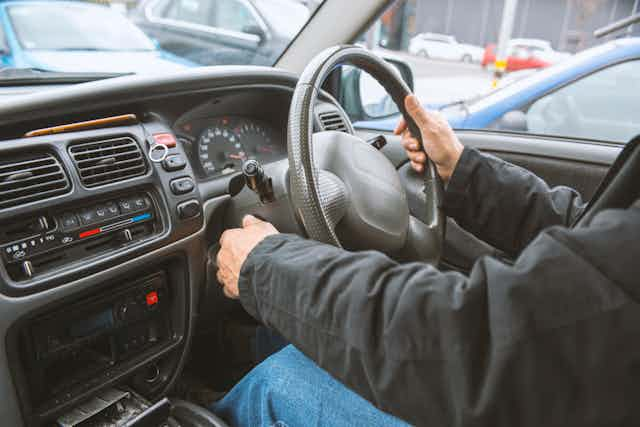Without consultation or warning, the UK Driver and Vehicle Licensing Agency (DVLA) recently changed its website guidance for drivers with an autistic spectrum disorder. It stated that such drivers need to declare to the DVLA that they are autistic regardless of whether or not this affects their driving. And with no publicity for the change, this immediately put many autistic drivers in the position of unknowingly breaking the law by continuing to drive.
The change required autistic drivers to complete a form and detail levels of alcohol and drug use, name their doctor and specialist consultant, as well as what clinics they attend and when. Drivers also had to agree to these medical professionals being contacted for information – even though their doctor’s specific understanding of what it means to be autistic might be limited.
The declaration also meant that autistic drivers had to prove they were fit to drive or face a £1,000 fine and possible prosecution in the event of an accident – and in some instances have their licence revoked.
But thankfully, a successful challenge to the DVLA over the practice of treating autistic drivers differently was launched and the decision was overturned. The challenge centred on the idea that the requirement of disclosure is against the human rights of autistic people as it treats them differently.
Being different
But herein lies part of the problem, because it is the autistic community and its allies that have promoted this very idea of autistic people being different.
Many people, the DVLA included, use the term autistic spectrum disorder. It is unsurprising, then, that this raises questions about whether people who are considered to be “disordered” are safe to drive on the roads.
Autistic people and their supporters challenge the use of the term “disorder”, claiming it to be misleading, demeaning and an attack on self-esteem. Instead, many autistic self-advocates identify as “different” rather than “disordered”. The National Autistic Society (NAS) supports this notion of difference but also refers to autism as a “condition”.
But for autistic drivers, this is probably no more helpful than the term “disorder”, as the DVLA is as likely to be concerned about people driving with a “condition” as a “disorder”. Nor will the idea of being “different” be of any more help to autistic drivers – as it is not clear who or what autistics are different from. Difference therefore becomes just another term that marginalises autistic people. It sets them apart as “other” and makes them vulnerable to particular regulation.
Not all the same
My own research has long been concerned with how this notion of difference has the potential to take those who identify as autistic outside of being human. In doing so, people who identify as autistic are then left without the protection of rights that are the entitlement of all human beings.
Fortunately, the DVLA has made a U-turn in this case and now drivers only have to declare that they are autistic if this will impede their driving. But this lucky escape should be a warning to us all to think more carefully about claiming difference.
I worry, though, that this regulation change from the DVLA is just one example of how being different can lead to being treated differently. The panic that has resulted from this action of the DVLA clearly demonstrates how devastating the effects of being denied the protection of human rights can be.
It is time we moved way from celebrating and promoting this concept of difference. We need instead to assert the humanity of people who identify as, or have been categorised as, autistic. This will involve the identification and celebration of the qualities and contributions that all its members bring to society as well as recognising the challenges and barriers they face.
We should, of course, highlight and protest against physical and social environments when they are constructed in ways that disable some people. But this happens because society often only considers the needs of some, rather than all, of its members. It is not because some beings are essentially and distinctly different. Along with the concepts of “disorder” and “condition”, the action of the DVLA has highlighted how “difference” can be an equally dangerous road to take.

